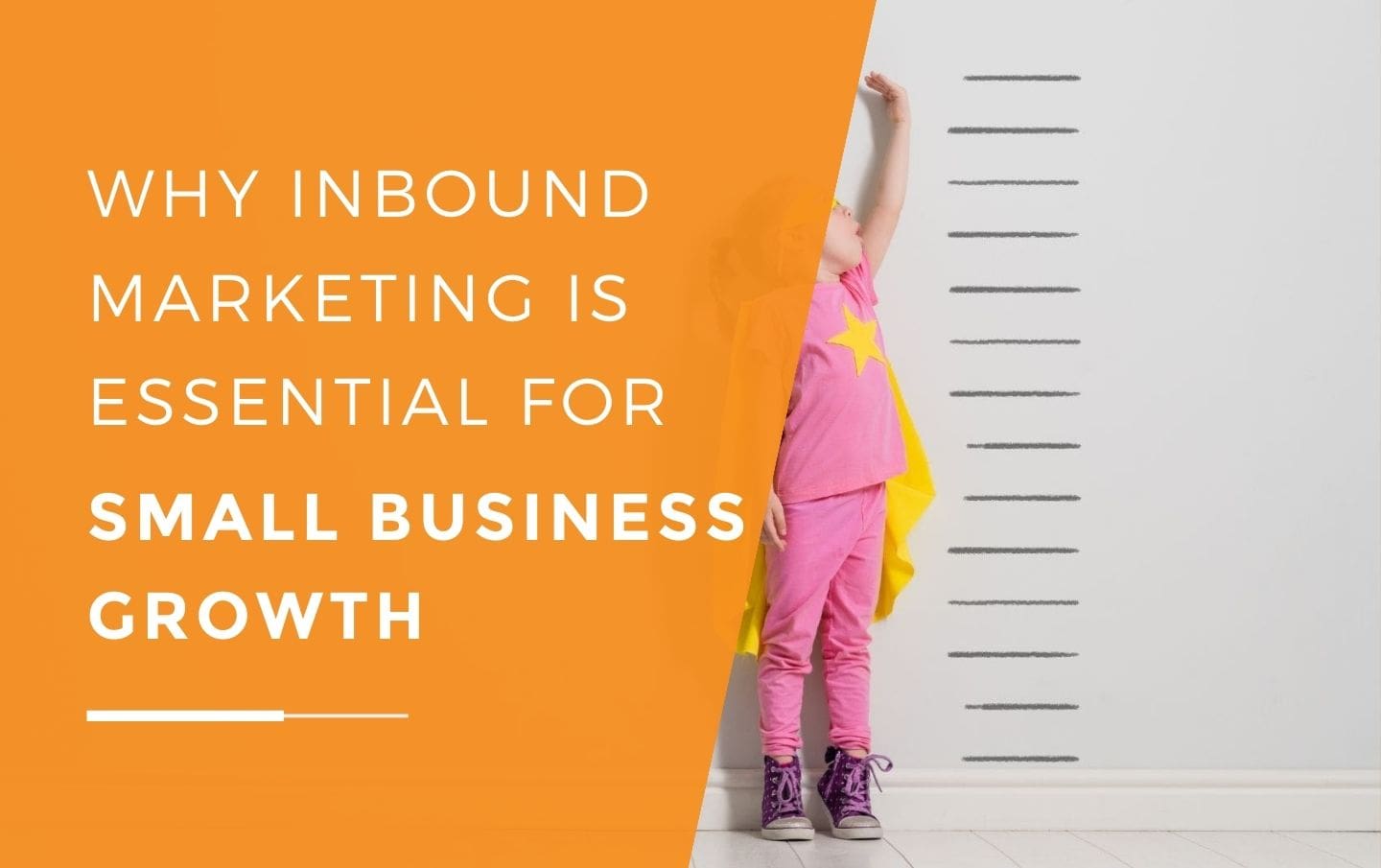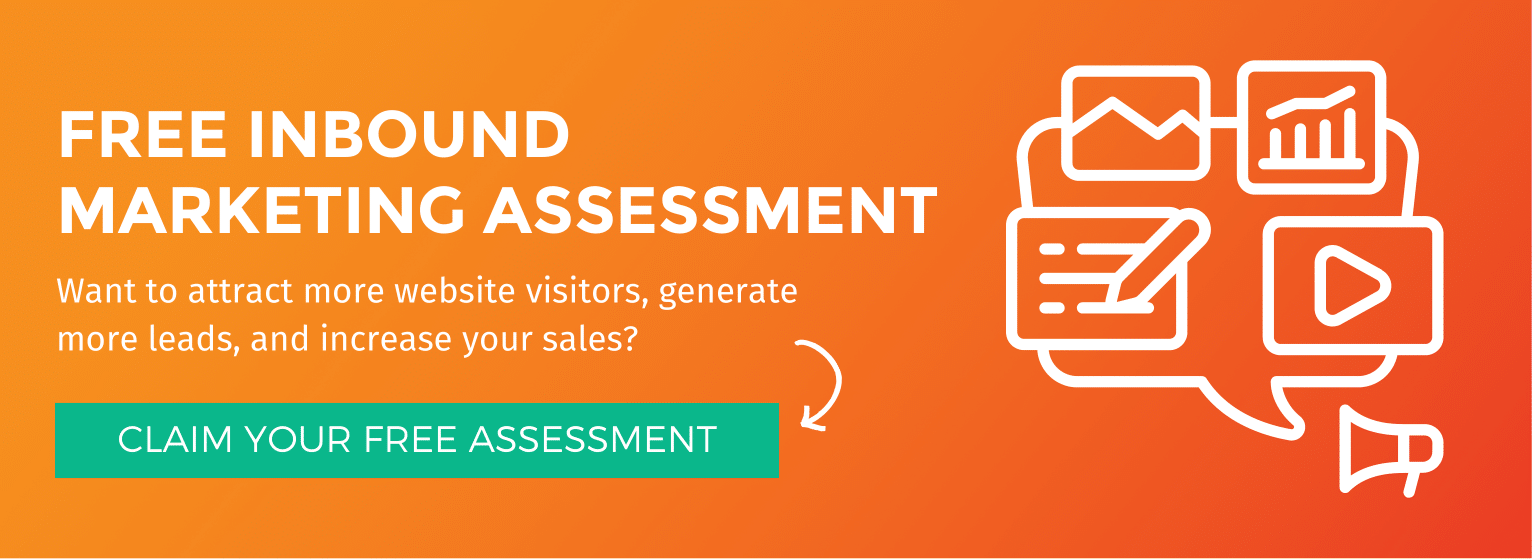Inbound Marketing: An Investment Solution For Small Business Growth
by Will Williamson on 17-Aug-2023 13:00:00

Inbound marketing is a cost-effective growth strategy for SMEs with limited resources, with a lower cost per sale, greater measurability, and higher long-term results than many paid advertising solutions. For this reason, inbound is the ideal growth investment for smaller businesses, and when implemented correctly, an inbound marketing campaign can position your business as a thought leader in your sector, driving long-term success and growth.
Let’s look at the advantages in more detail:
1. Cost-Effective
Although there are costs involved with inbound marketing services and materials, inbound is generally more affordable compared with traditional marketing methods and even some outbound digital advertising strategies. The core components of inbound marketing are social media, blogs, webpages, and emails, which are relatively affordable to produce and deliver high long-term yields compared to their cost. Compared to this, the cost of traditional outbound marketing channels, such as print media, face-to-face sales networking, and radio advertising, can quickly eat up a small business’s limited marketing budget.
2. Builds Trust And Authority
Part of the value of inbound marketing is the way that it provides value to your prospects, thus building trust and credibility with potential customers. Inbound hinges on attracting customers who are actively looking for solutions to their problems, through publishing quality content that develops your authority in your sector. This trust and authority are cumulative, establishing your brand as an expert on a specific topic or sector, resulting in increased results from subsequent content and marketing efforts.
3. Higher-Quality Leads
Inbound marketing draws in potential customers who are already interested in your products and services, and so are by definition warmer leads than the recipients of unsolicited advertising or marketing materials. This results in higher quality leads that have a better chance of converting into sales and of becoming long-term customers, while also making the sales process easier and more cost-effective for your team.
4. Easily Measurable ROI
Every pound matters for SMEs on a tight budget, and so one of the benefits of inbound marketing is the ease by which ROI can be measured. By using tools such as Google Analytics and HubSpot, businesses can precisely track their website visitors, social media interactions, email open rates, and other performance metrics, identifying which inbound marketing tactics are most effective and which need optimisation, and thus make data-driven marketing decisions.
5. Long-Term Growth Strategy
Inbound marketing is a long-term growth strategy that can help businesses generate leads and sales from their content assets for years into the future. Unlike traditional marketing strategies with an expiration date and limited scope (such as an advert in one edition of a newspaper), inbound marketing content assets such as articles, landing pages, and social media posts are evergreen assets that provide compound returns over time. It’s no exaggeration that an eBook you publish this month could still be bringing in leads five years from now, with no additional expenditure required. Investing in inbound marketing instigates a sustainable marketing strategy that drives growth year on year and ultimately delivers an extremely strong return on investment.
Next Steps
To find out more about inbound marketing and the investment benefits to your business, please get in touch with one of our expert team today.
Image Source: Pexels
- Inbound Marketing (SEO, PPC, Social Media, Video) (831)
- Strategy (368)
- Sales & CRM (197)
- Marketing Automation & Email Marketing (190)
- Business Growth (168)
- Website Design (162)
- Hubspot (141)
- Lead Generation (117)
- Google Adwords (100)
- Content Marketing (94)
- Conversion (53)
- Case Studies (49)
- News (47)
- Ecommerce (39)
- Webinars (34)
- SEO (26)
- AI (20)
- Events (19)
- LinkedIn Advertising (17)
- Video (17)
- Video Selling (15)
- Software training (13)
- Niche business marketing (11)
- The Digital Prosperity Podcast (10)
- HubSpot Case Studies (7)
- Facebook Advertising (6)
- Web Design Case Studies (1)
- February 2026 (2)
- January 2026 (12)
- December 2025 (15)
- November 2025 (6)
- October 2025 (17)
- September 2025 (16)
- August 2025 (14)
- July 2025 (14)
- June 2025 (5)
- May 2025 (19)
- April 2025 (15)
- March 2025 (13)
- February 2025 (13)
- January 2025 (8)
- December 2024 (2)
- November 2024 (4)
- October 2024 (21)
- September 2024 (4)
- August 2024 (8)
- July 2024 (14)
- June 2024 (16)
- May 2024 (25)
- April 2024 (15)
- March 2024 (18)
- February 2024 (5)
- January 2024 (10)
- December 2023 (6)
- November 2023 (10)
- October 2023 (13)
- September 2023 (12)
- August 2023 (14)
- July 2023 (13)
- June 2023 (14)
- May 2023 (15)
- April 2023 (13)
- March 2023 (14)
- February 2023 (13)
- January 2023 (15)
- December 2022 (13)
- November 2022 (6)
- October 2022 (8)
- September 2022 (22)
- August 2022 (15)
- July 2022 (13)
- June 2022 (16)
- May 2022 (14)
- April 2022 (16)
- March 2022 (17)
- February 2022 (11)
- January 2022 (8)
- December 2021 (6)
- November 2021 (7)
- October 2021 (11)
- September 2021 (10)
- August 2021 (7)
- July 2021 (7)
- June 2021 (4)
- May 2021 (4)
- April 2021 (1)
- March 2021 (3)
- February 2021 (5)
- January 2021 (4)
- December 2020 (7)
- November 2020 (6)
- October 2020 (5)
- September 2020 (9)
- August 2020 (18)
- July 2020 (17)
- June 2020 (17)
- May 2020 (10)
- April 2020 (21)
- March 2020 (24)
- February 2020 (21)
- January 2020 (12)
- December 2019 (23)
- November 2019 (12)
- October 2019 (14)
- September 2019 (16)
- August 2019 (15)
- July 2019 (13)
- June 2019 (6)
- May 2019 (8)
- April 2019 (4)
- March 2019 (2)
- February 2019 (2)
- January 2019 (2)
- December 2018 (3)
- November 2018 (24)
- September 2018 (11)
- August 2018 (9)
- June 2018 (3)
- May 2018 (6)
- April 2018 (14)
- March 2018 (12)
- February 2018 (16)
- January 2018 (15)
- December 2017 (15)
- November 2017 (18)
- October 2017 (23)
- September 2017 (19)
- August 2017 (28)
- July 2017 (27)
- June 2017 (25)
- May 2017 (18)
- April 2017 (17)
- March 2017 (16)
- February 2017 (17)
- January 2017 (14)
- December 2016 (21)
- November 2016 (27)
- October 2016 (25)
- September 2016 (16)
- August 2016 (20)
- July 2016 (19)
- June 2016 (14)
- May 2016 (20)
- April 2016 (24)
- March 2016 (22)
- February 2016 (28)
- January 2016 (27)
- December 2015 (28)
- November 2015 (19)
- October 2015 (9)
- September 2015 (12)
- August 2015 (5)
- July 2015 (1)
- June 2015 (10)
- May 2015 (3)
- April 2015 (11)
- March 2015 (14)
- February 2015 (15)
- January 2015 (12)
- December 2014 (2)
- November 2014 (23)
- October 2014 (2)
- September 2014 (2)
- August 2014 (2)
- July 2014 (2)
- June 2014 (7)
- May 2014 (14)
- April 2014 (14)
- March 2014 (7)
- February 2014 (2)
- January 2014 (7)
- December 2013 (9)
- November 2013 (14)
- October 2013 (17)
- September 2013 (3)
- August 2013 (6)
- July 2013 (8)
- June 2013 (4)
- May 2013 (3)
- April 2013 (6)
- March 2013 (6)
- February 2013 (7)
- January 2013 (5)
- December 2012 (3)
- November 2012 (2)
- September 2012 (1)
Subscribe by email
You May Also Like
These Related Blogs

Why Inbound Marketing (SEO & Social Media) Is Crucial For Your Small Business
Inbound marketing is an umbrella term for a wide range of digital sales and content strategies designed to encourage inbound sales enquiries. It is tr …

Why Inbound Marketing Is Essential For Small Business Growth
Inbound marketing has become the leading digital growth strategy for businesses of all sizes, effectively supplanting outbound sales by using search m …

Why Inbound Marketing Works For Small Businesses
Inbound marketing is growing in popularity among small businesses for the simple fact that it works. Like for like, every pound invested in an inbound …




